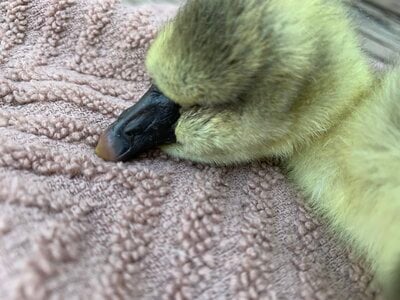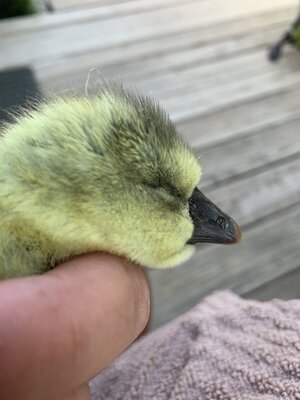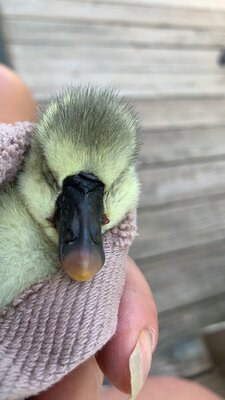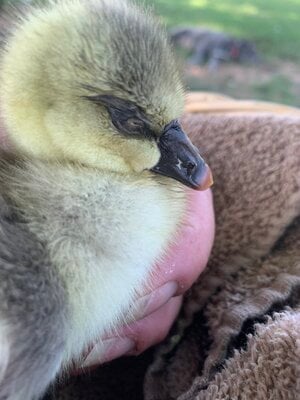GooseOnLoose
In the Brooder
- Aug 22, 2020
- 15
- 27
- 23
Hello everyone. I’ve had Chinese geese for a number of years and have hatched a few and my geese have also hatched their own. This time I’ve run into a few issues...too much to type here now, but the nutshell version is that the goose abandoned the nest and the three that were viable and close to hatching I stuck under a setting hen (chicken).
2 hatched just fine and are fluffy and active, the third was a couple days behind and it appears he has no eyes... my first reaction was to remove him, but a friend suggested I leave him with the hen so he gets to know their voices and the area where they are.
I’ll be honest in saying I simply am at a loss on what to do. I won’t cull the gosling but I’m very concerned at what kind of quality of life he would have, because my birds all free range and he would have to be kept in some type of pen.
Im not at all sure he is completely healthy, which adds to other concerns, but only being 24 hours old, it’s awfully soon to try to make any determinations.
I’ve read a lot of different threads and gathered a lot of info over the last 24 hours — but ultimately am looking for ideas, advice and suggestions for this little guy.
Any help would be greatly appreciated and thank you in advance.
2 hatched just fine and are fluffy and active, the third was a couple days behind and it appears he has no eyes... my first reaction was to remove him, but a friend suggested I leave him with the hen so he gets to know their voices and the area where they are.
I’ll be honest in saying I simply am at a loss on what to do. I won’t cull the gosling but I’m very concerned at what kind of quality of life he would have, because my birds all free range and he would have to be kept in some type of pen.
Im not at all sure he is completely healthy, which adds to other concerns, but only being 24 hours old, it’s awfully soon to try to make any determinations.
I’ve read a lot of different threads and gathered a lot of info over the last 24 hours — but ultimately am looking for ideas, advice and suggestions for this little guy.
Any help would be greatly appreciated and thank you in advance.






